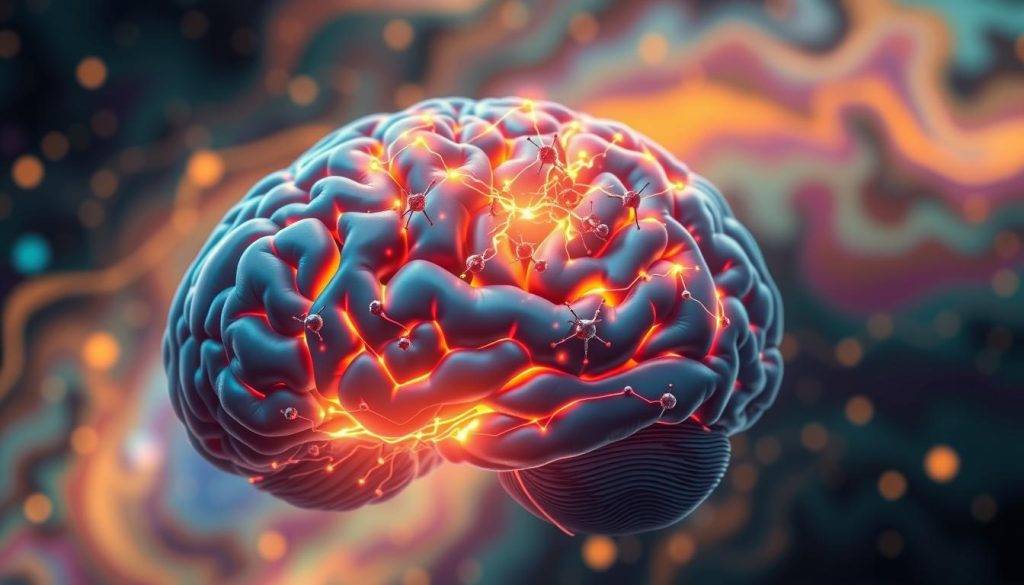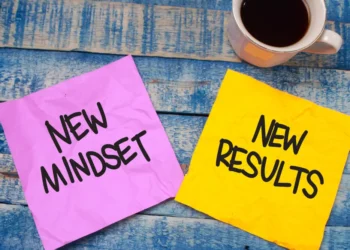“What separates privilege from entitlement is gratitude.” This insight from researcher Brené Brown captures the heart of radical gratitude—a practice that transcends polite manners to reshape how we engage with life. Unlike transactional exchanges of thanks, radical gratitude becomes a way of being, a lens that transforms ordinary moments into opportunities for connection and growth.
Research reveals that this approach isn’t about waiting for good things to happen. It’s about waking up each day with an “I get to” mindset instead of an “I have to” mentality. When practiced consistently, it builds resilience by anchoring us in appreciation—even during challenges.
The journey begins by reframing life as a laboratory for thankfulness. Small acts like noticing sunlight through a window or listening deeply in conversations become experiments in living authentically. Over time, this practice rewires thought patterns, fostering generosity and vulnerability as natural responses to the world.
Key Takeaways
- Radical gratitude shifts from fleeting reactions to a foundational mindset
- Daily practice builds resilience regardless of external circumstances
- Life becomes a training ground for authentic connection
- Science-backed methods strengthen mental and physical well-being
- Barriers to thankfulness can be overcome with intentional strategies
Understanding Grateful Living
Brother David Steindl-Rast once observed, “It is not happiness that makes us grateful. It is gratefulness that makes us happy.” This philosophy lies at the core of grateful living—a transformative approach that reshapes how we interact with existence itself.

More Than Positive Thinking
Grateful living isn’t about ignoring life’s difficulties. It’s a fundamental shift from seeing life as something owed to recognizing it as an unfolding gift. When you view each breath as miraculous and every interaction as fleeting, ordinary moments become extraordinary.
Breaking Free From Conditions
Most people practice thankfulness only when circumstances align with their desires. Radical appreciation works differently. It thrives during traffic jams, tough conversations, and sleepless nights—especially then. This mindset helps uncover hidden lessons in challenges rather than waiting for storms to pass.
Consider morning coffee. Through grateful living, this routine becomes sacred—a chance to savor warmth, taste, and the hands that harvested the beans. Such awareness creates ripples, encouraging you to share blessings rather than hoard them.
This practice doesn’t erase pain but builds resilience. By valuing what you have while working toward what you need, you develop emotional flexibility. The world becomes less about lack and more about possibility—one mindful moment at a time.
Benefits of Practicing Gratitude
Expressing thanks isn’t just polite—it’s biologically transformative. Studies show this practice alters body chemistry within weeks, creating measurable improvements in well-being. Regular appreciation acts like a multivitamin for the mind and body, offering benefits that ripple through every aspect of life.

Mental and Physical Health Advantages
Thankfulness triggers a chain reaction in the body. It lowers stress hormones like cortisol by up to 23% while boosting mood-regulating neurotransmitters. This biochemical shift explains why people who practice appreciation report:
- 21% fewer physical complaints
- 19% better sleep quality
- Stronger immune responses during flu season
Research from Johns Hopkins reveals that recognizing life’s gifts reduces inflammation markers linked to heart disease. It also activates brain regions governing emotional regulation—a key factor in managing anxiety and depression.
Strengthening Relationships and Social Bonds
When you acknowledge others’ contributions, you create what psychologists call “relational buoyancy.” A simple “I appreciate you” increases oxytocin levels in both speaker and listener, fostering trust.
“This emotional loop builds connection currency that compounds over time,”
notes relationship researcher Dr. Sara Algoe.
Teams that share regular appreciation show 31% higher collaboration scores. Families practicing thankfulness report fewer conflicts and more meaningful conversations. By focusing on what works in relationships, you naturally attract supportive social networks.
The Science Behind Gratitude
Neuroscientists have mapped how appreciation reshapes our biological wiring. Specific brain regions light up during thankful moments like puzzle pieces snapping into place. These neural networks govern social bonding, emotional balance, and even physical relaxation responses.

Rewiring Your Neural Pathways
Daily appreciation strengthens connections between the prefrontal cortex and limbic system. This partnership helps regulate emotions while enhancing decision-making. One study found three months of consistent practice thickens the brain’s gray matter in empathy-related areas.
| Brain Region | Function Boosted | Measured Change |
|---|---|---|
| Anterior Cingulate Cortex | Emotional Regulation | 23% Activity Increase |
| Ventral Striatum | Pleasure Response | 17% Dopamine Surge |
| Hypothalamus | Stress Management | 31% Cortisol Reduction |
Evidence-Based Emotional Shifts
Research reveals thankfulness activates the brain’s mu-opioid receptors—the same systems triggered by pain relief medications. This explains why people practicing appreciation report 19% less physical discomfort. Psychology professor Robert Emmons notes: “Recognizing life’s gifts trains the brain to spot opportunities rather than obstacles.”
A groundbreaking Indiana University study showed depressed patients developed new neural pathways after eight weeks of appreciation exercises. Their brain scans revealed increased activity in regions governing positive emotion regulation—changes that persisted six months post-study.
Daily Gratitude Practices for a Fulfilling Life
Transforming appreciation from concept to habit requires intentional design. These science-backed methods help anchor thankfulness in daily rhythms without overwhelming schedules.

Journaling and Reflective Writing
Effective journaling focuses on specific moments over vague generalities. Instead of listing “family” as a thankful item, describe how your sibling’s unexpected call lifted your mood last Thursday. This specificity activates memory networks linked to positive emotions.
| Generic Entry | Impactful Alternative |
|---|---|
| “I’m thankful for my job” | “The flexible schedule let me attend my daughter’s recital today” |
| “Grateful for friends” | “Alex brought my favorite tea when I was stressed about deadlines” |
Research from UC Davis shows optimal results come from writing 1-3 weekly entries. This spacing prevents emotional adaptation while maintaining freshness.
Mindfulness, Meditation, and Sensory Awareness
Ground appreciation in physical reality through this 3-step exercise:
- Breathe deeply while noticing one pleasant scent
- Identify three distinct sounds in your environment
- Describe a texture you’re touching right now
“Presence amplifies appreciation. What we notice fully, we value deeply.”
Integrate these moments naturally: savor coffee’s warmth instead of gulping it, or pause to admire sunset colors during commutes. These micro-practices build neural pathways for sustained positivity.
Overcoming Gratitude Inhibitors
Modern life constantly whispers that something’s missing—a hidden script urging comparisons and stoking fears of inadequacy. These mental barriers often work together, creating emotional roadblocks that disconnect people from appreciating their present reality. Recognizing these patterns is the first step toward reclaiming your capacity for joy.
Spotting Hidden Saboteurs
Fear whispers “there’s not enough” while comparison shouts “others have better.” These thoughts trigger stress by focusing on lack rather than possibility. Social media amplifies this cycle, making others’ achievements appear constant and effortless.
Rewriting the Narrative
Combat cultural conditioning by questioning messages that tie worth to possessions. When envy arises, pause and list three specific blessings in your current moment. Replace “I need more” with “I notice what’s here.”
Practical tools include setting phone reminders to name one sensory pleasure—like morning coffee’s aroma—or reframing challenges as growth opportunities. Over time, this builds emotional resilience, helping you navigate life’s ups and downs with clearer perspective.
FAQ
How does appreciation improve mental well-being?
Studies from institutions like Harvard Medical School show that regular reflection on positive experiences boosts dopamine production, enhances emotional regulation, and reduces stress hormones like cortisol. This strengthens neural pathways linked to optimism over time.
What’s the difference between everyday thanks and radical appreciation?
Everyday thanks often depends on circumstances—like feeling pleased when things go well. Radical appreciation involves finding value in challenges and ordinary moments, fostering resilience regardless of external conditions.
Can thankfulness practices impact physical health?
Research in Psychosomatic Medicine found those who keep appreciation journals report fewer headaches, improved sleep quality, and stronger immune responses. The mind-body connection plays a key role in these benefits.
Why do some people resist daily reflection habits?
Cultural narratives emphasizing achievement over presence, combined with fear of vulnerability, can create resistance. Tools like Headspace’s guided meditations help ease into the practice by providing structure.
How quickly can someone experience changes from appreciation exercises?
A 2023 UC Davis study observed measurable shifts in participants’ emotional baselines within three weeks of consistent journaling. Results vary, but small daily efforts compound into noticeable mindset shifts.
What if I struggle to find things to appreciate during hard times?
Start with basic sensory anchors—the warmth of sunlight or the taste of water. Brené Brown’s research highlights that acknowledging simple comforts builds emotional agility, even amid adversity.
How does this practice strengthen relationships?
Expressing specific acknowledgments—like “I value how you listened yesterday”—activates reciprocal care in social bonds. The Gottman Institute notes this creates “emotional savings accounts” that deepen trust.




























































